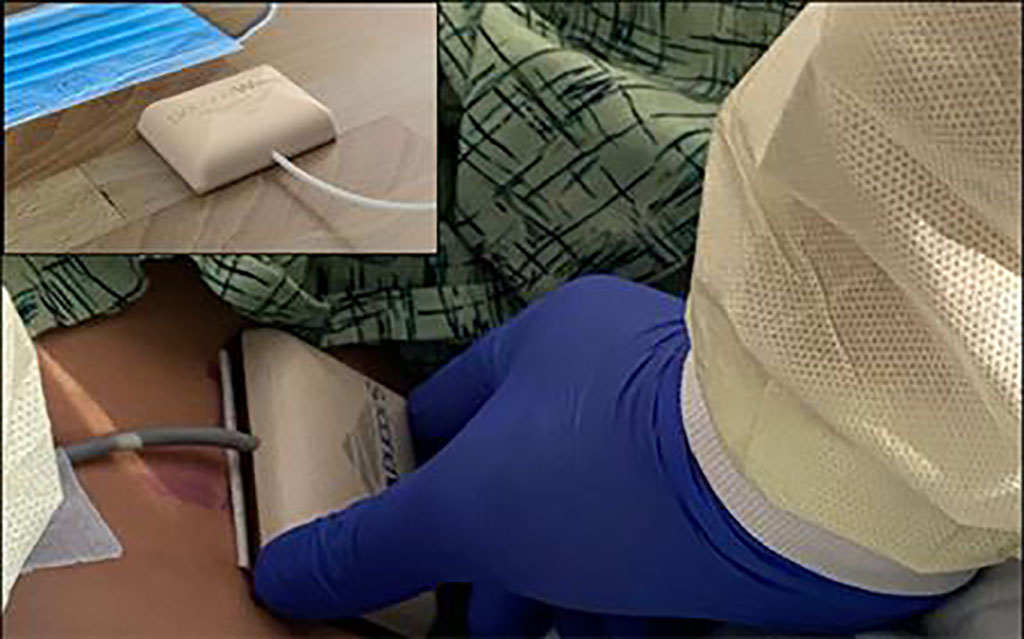Ultrasound Stimulation Reduces COVID-19-Related Inflammation and Decreases Length of Hospital Stays
By MedImaging International staff writers
Posted on 14 May 2021
Researchers have begun a pilot clinical trial to test the efficacy of using ultrasound to stimulate the spleen and reduce COVID-19-related inflammation, decreasing the length of hospital stays.Posted on 14 May 2021
The two- to three-month study, called Ultrasound Neural and Immunomodulation Treatment Evaluation Study for COVID-19 or UNITE Study, by researchers at University of California San Diego School of Medicine (San Diego, CA, USA), will recruit 40 patients with severe COVID-19 symptoms. Half of the patients in the trial will be given ultrasound treatment daily for up to seven days, in addition to receiving anti-inflammatory drugs, such as remdesivir and dexamethasone, which are currently part of standard medical care. The other half - the control group - will receive only standard medical care.

Image: Ultrasound Stimulation Reduces COVID-19-Related Inflammation and Decreases Length of Hospital Stays (Photo courtesy of SecondWave Systems)
In earlier rodent studies, stimulating the spleen with a non-invasive ultrasound device was shown to reduce inflammation. Researchers have also demonstrated the anti-inflammatory value of spleen stimulation in healthy human subjects and in human patients with rheumatoid arthritis (RA). Both RA and COVID-19 patients can suffer from a hyperinflammatory response driven by over-production of cytokines - proteins that signal and spur an inflammatory immune response. The resulting “cytokine storm” in COVID-19 patients can lead to acute respiratory distress syndrome, known as ARDS, which can be fatal.
A July 2020 study had demonstrated the effects of splenic stimulation in RA and healthy patients, and its potential in COVID-19 patients. Prior studies have also shown that electrical stimulation of the vagus nerve, which runs from the brain to the gut, using a cervical implant, reduces inflammation. Stimulating the spleen may activate the same anti-inflammatory pathways. The clinical trial will use an investigational device strategically placed on patients’ skin that generates low-intensity, focused ultrasound waves targeting the spleen. Treatment occurs daily for approximately 18 minutes for up to seven days.
“It’s a pilot study to evaluate whether ultrasound stimulation focused on the spleen can reduce inflammatory biomarkers in hospital patients infected with SARS-CoV-2,” said Imanuel Lerman, MD, associate professor of anesthesiology at UC San Diego School of Medicine and an affiliate of Qualcomm Institute at UC San Diego, where his lab is based. “This will allow us to determine whether treating patients this way can really affect clinical outcomes in COVID-19 infections.”
Related Links:
University of California San Diego School of Medicine














